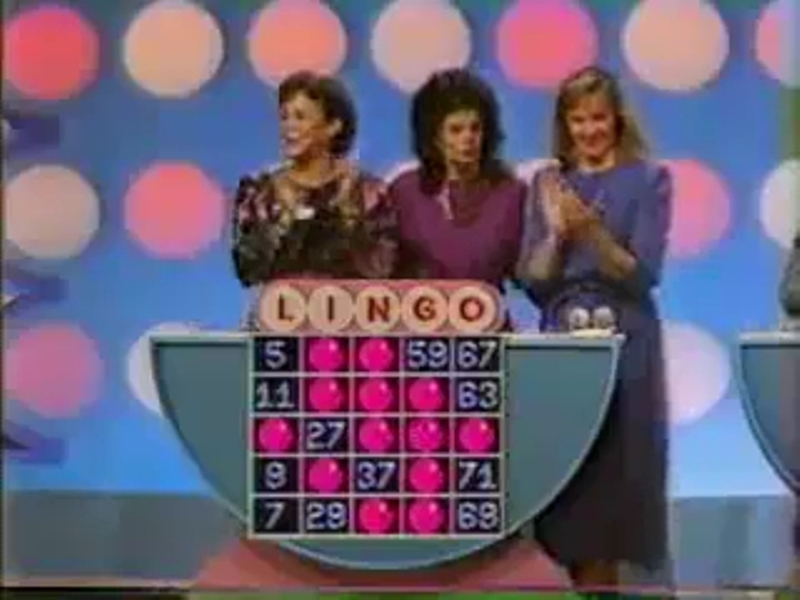

Each correctly guessed word awarded 25 points, while scoring a "Lingo" awarded 50 points, a new Lingo board, and a letter in the bonus round. Unlike the 1987 version, the 2002 version used a point system, and did not feature prize balls. Gameplay on the GSN version was largely similar to that of its 1987 counterpart, though with several changes. Doing so awarded $250 cash on the 1987 version, with the first team to complete a Lingo being declared the winner. Starting with the 2002 version, the red balls were known as "stoppers." The goal of the Lingo board is to achieve five covered spaces in a row in any direction, known as a "Lingo". Also present are red balls, which if drawn, immediately forfeit control to the opposing team. The 1987 version also featured "prize balls," which awarded trips or cash if drawn. Most of the balls contain numbers, which correspond to those on each team's respective Lingo board. If the opposing team still fails to guess, then the word is discarded and a new one generated.Īfter correctly guessing a word, a team draws balls from a hopper in front of them. Passing control to the opposing team also reveals another letter in the word, unless doing so would fill in the word completely. A team has five turns in which to guess the word.Ĭontrol passes to the opposing team if the team in control either fails to make a guess before five seconds expire makes an invalid guess (a misspelled word, a proper noun, a contraction, a hyphenate, or a word not five letters in length), or guesses incorrectly on the fifth turn. If the team did not come up with the right word on the first try, they were shown which letters were correctly placed as well as those in the word but not correctly placed. A letter that turns red is in the mystery word and in the right place, one that is yellow is in the mystery word but in the wrong place, and one that does not light up is not in the mystery word at all.

To assist in figuring out the word, each letter lights up. The team is then given the first letter of a five-letter mystery word and must make attempts at guessing the word by spelling it out.

The 1987 version started with seven spaces filled in, while all other versions start with ten. To start the game, each team receives a randomly generated "Lingo" card, similar in manner to a Bingo card, with some spaces already filled in. Two teams of two contestants, one of them usually a returning champion, compete. Gameplay 1987 version An example of a Lingo puzzle On February 11, 2022, CBS announced that it had ordered a primetime revival of Lingo, with RuPaul as host and executive producer, which premiered on January 11, 2023.

On June 6, 2011, GSN premiered a second revival hosted by comedian Bill Engvall, running for one season. On August 5, 2002, Game Show Network (GSN) premiered a revival of Lingo, which was hosted by Chuck Woolery and ran for six seasons through 2007.
#LINGO GAME SHOW RUPAUL SERIES#
The first was aired in daily syndication from September 28, 1987, until March 25, 1988, and taped at the BCTV studios in the Vancouver suburb of Burnaby, British Columbia initially hosted by Michael Reagan, series creator Ralph Andrews took over beginning in February 1988. In it, contestants compete to decode five-letter words given the first letter, similarly to Jotto, with each correctly guessed word earning number draws to attempt filling in a Bingo card.įour Lingo series have aired in the United States. Lingo is an American television game show with multiple international adaptations.


 0 kommentar(er)
0 kommentar(er)
